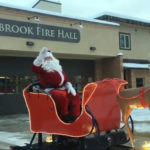Home »

Mayhem and meanness and a touch of tender
Book Review
By Derryll White
Ide, Joe (2022). The Goodbye Coast – A Philip Marlowe Novel
“The muzzle of the Luger looked like the mouth of the Second Street tunnel, but I didn’t move. Not being bullet proof is an idea I had had to get used to.” -Raymond Chandler’s Philip Marlowe
This novel is a break from Joe Ide’s groundbreaking ‘IQ’ series. The author pays tribute to the man who made hardboiled detective fiction popular, Raymond Chandler. Chandler is a standout in the genre. His first novel, The Big Sleep (1939) was later made into a classic film starring Humphrey Bogart. These are big shoes for Joe Ide to occupy.
 Chandler wrote, “Down these mean streets a man must go who is not himself mean, who is neither tarnished nor afraid. The detective must be a complete man and a common man and yet an unusual man. He must be, to use a rather weathered phrase, a man of honor—by instinct, by inevitability, without thought of it, and certainly without saying it. He must be the best man in his world and a good enough man for any world.”
Chandler wrote, “Down these mean streets a man must go who is not himself mean, who is neither tarnished nor afraid. The detective must be a complete man and a common man and yet an unusual man. He must be, to use a rather weathered phrase, a man of honor—by instinct, by inevitability, without thought of it, and certainly without saying it. He must be the best man in his world and a good enough man for any world.”
Joe Ide’s new Philip Marlowe, “Call me Marlowe,” transplanted to 2021, is not the fiction icon Chandler created. The new guy is troubled, confused, sexy burdened by a Los Angles he both loves and hates. His dad, Emmet, gives the story depth and history, and he becomes a major character in his own right. Cody’ the 17-year-old anti-hero, is a spoiled female psychopath who creates confusion and trouble wherever she alights.
The author keeps the story moving. It has its tender moments; but mayhem and meanness predominate. Joe Ide is viciously funny throughout. Is Marlow a new man for the 21st century? Not yet, but ‘The Goodbye Coast’ has the feeling of an opener, the beginning of a new series. Stay tuned, as they used to say!
********
Excerpts from the novel:
THE NEWS – To ease his mind, he watched the six o’clock news on NBC. He preferred his mayhem in measured chunks. Cable was a ceaseless conga line of carnage in third-grade classrooms, huge turnouts for gangster politicians, immortal viruses, the extinction of oxygen. CEOs screwing anything mammalian, plastic bags suffocating sea turtles and women beheaded for driving to the mall. Emmet hated weathercasters. They’d give you the local temperatures, followed by “Later in the show, I’ll tell you when to expect Hurricane Earl!” This wasn’t doing anything to improve his mood.
 SOCIAL MEDIA – “You know what I wouldn’t post?” Emmet said.
SOCIAL MEDIA – “You know what I wouldn’t post?” Emmet said.
“What’s that?”
Emmet took a moment to organize his thoughts. “First of all, cats. Goddamn cats. What makes these people think that anybody wants to see one more photo of Fuzzy coughing up a hair ball or licking his own patootie? Everybody’s seen that crap a million times! At some point in their lives, everybody’s owned a goddamn cat. I really don’t get these people. I mean, what are they thinking? That their cat is special? Oh really? Special how? The cat plays softball? The cat shits in the toilet? The cat has a graduate degree from the University of Meow Mix? I’ve got news for these folks. Nobody, not your family, your relatives, your coworkers or anybody else wants to see your ordinary, common-as-weeds kitty cat whether it’s making its own litter box or doing the mambo!”
“I think I get it, Emmet.”
“And you know what else people shouldn’t be posting?” Emmet went on. “Food.” His voice went up an octave. “Oh, look, everybody! I’m in a restaurant! Isn’t that amazing! And how ‘bout those Brussel Sprouts! They came from a farm! I’m the one wearing the apron that says I POST PICTURES OF MY GODDAMN CAT!”
L.A. – Marlowe drove on. LA was an ugly city. It had no character, no texture, no architecture, nothing to engage you. LA was a hot, endless flatland of streets, telephone poles, strip malls, gas stations and dry cleaners. Some places were brighter and had taller buildings, but you could hardly call that charm, character or even interesting. Emmet didn’t seem to mind. Marlowe had lived here all his life and had never once taken the long way home.
 – Derryll White once wrote books but now chooses to read and write about them. When not reading he writes history for the web at www.basininstitute.org
– Derryll White once wrote books but now chooses to read and write about them. When not reading he writes history for the web at www.basininstitute.org







